This document provides information on developing critical thinking skills when evaluating information sources. It discusses identifying the focus and perspective, finding supporting evidence, and engaging in debate to structure an argument. Potential pitfalls like relying on a single source or copying without attribution are noted. The document recommends evaluating sources like books, journals, and websites by considering author credentials, publication details, biases, and references. It provides tips for critically analyzing research papers and emphasizes the importance of citing sources to avoid plagiarism.
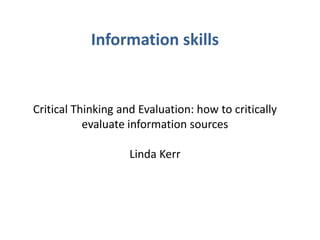


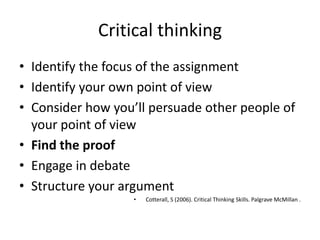
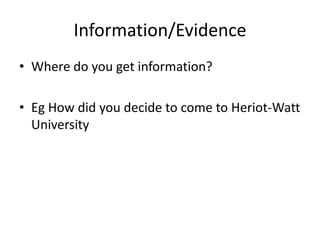

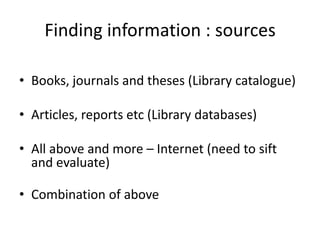
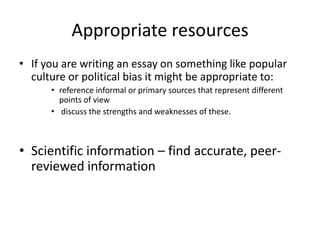

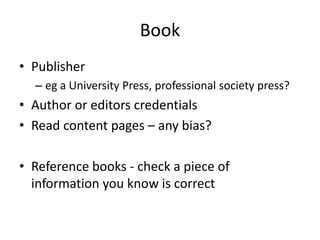

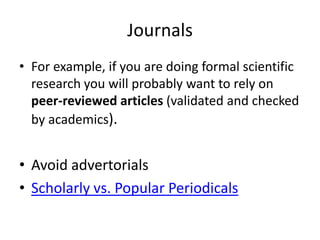
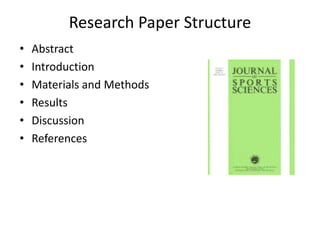
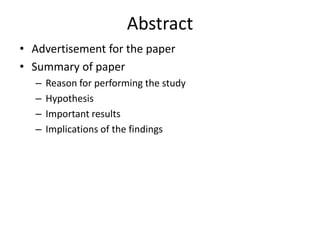
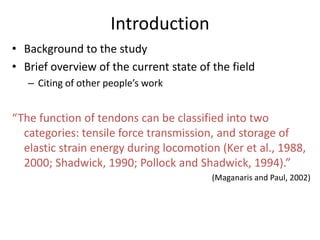


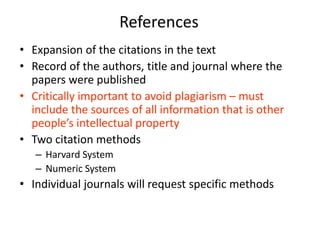
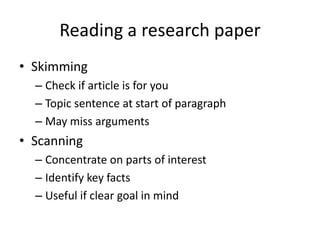

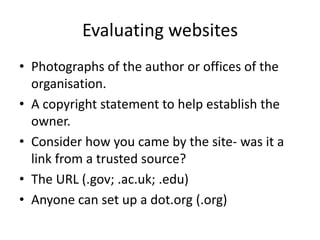

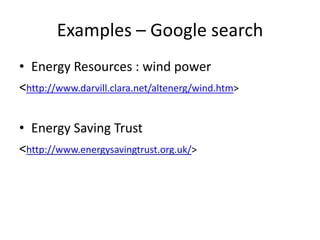

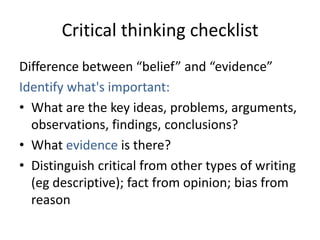

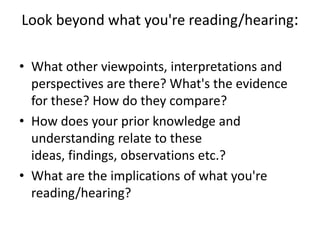
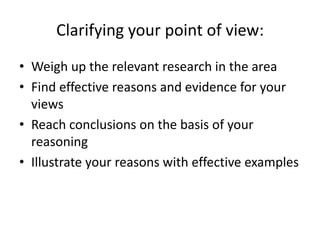

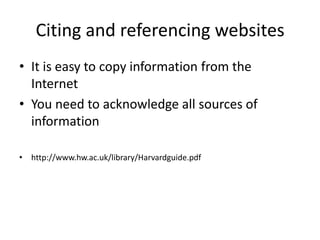

![Additional titles
• Thinking critically about critical thinking /
• Thinking critically about critical thinking / by Diane F. Halpern.
Lawrence Erlbaum, 1996. 153.42 HAL
• Writing science through critical thinking / by Marilyn F. Moriarty.
Jones and Bartlett, 1997. 810.61 MOR
• Critical thinking : a concise guide / by Tracy Bowell and Gary Kemp [eBook].
3rd ed. London : Routledge, 2010.
• Critical thinking and analysis / by Mary Deane and Erik Borg.
Publisher:Pearson, 2011. Class. Number:371.3 DEA](https://image.slidesharecdn.com/criticalthinking081012-ppt-121009055824-phpapp01/85/Criticalthinking-ppt-32-320.jpg)

